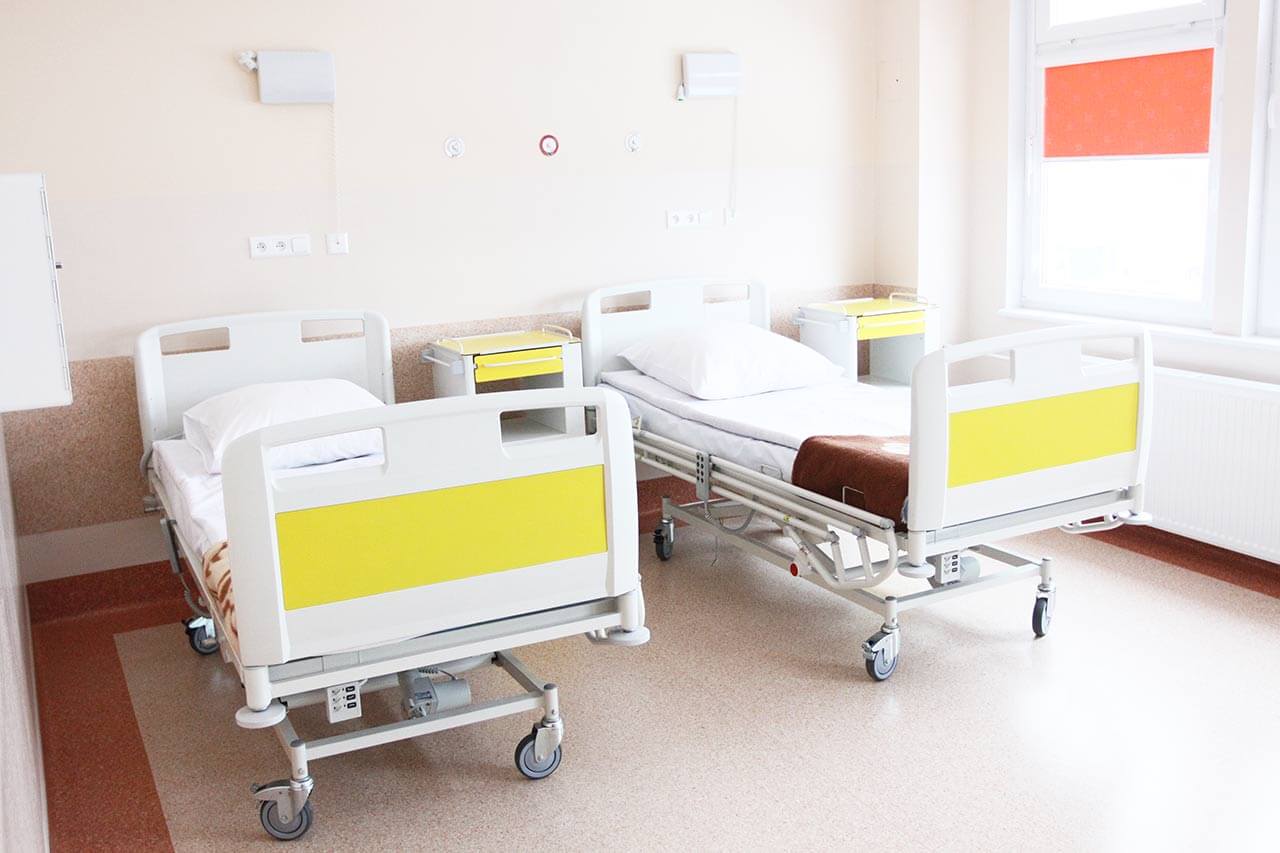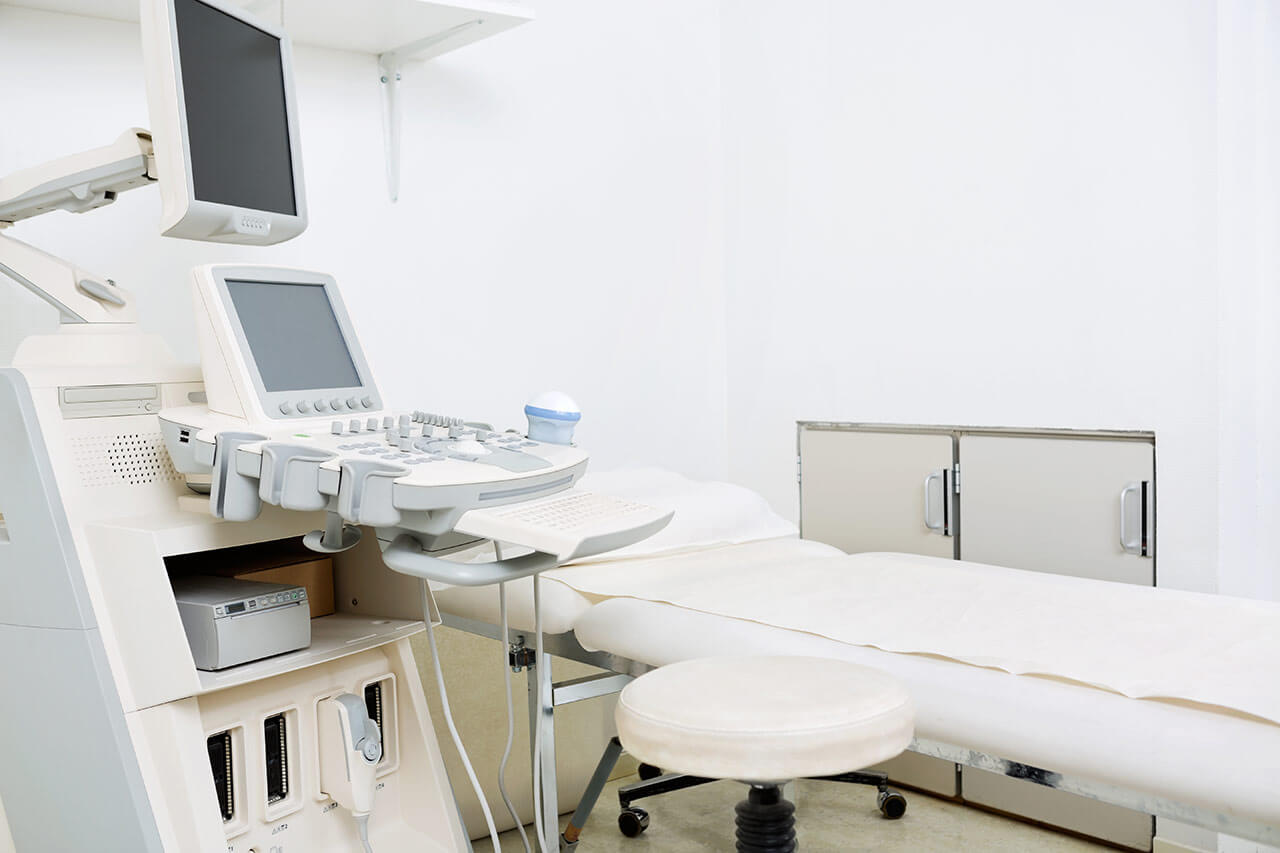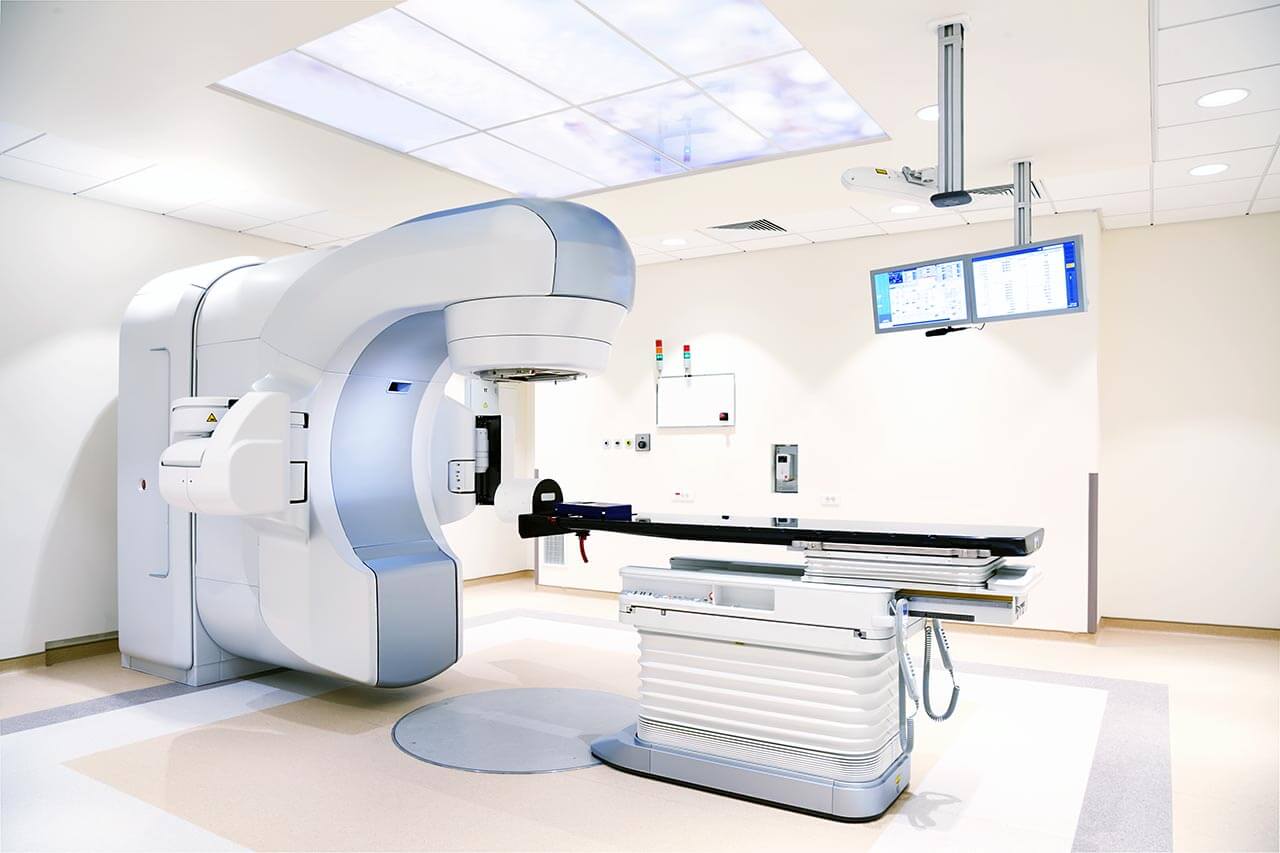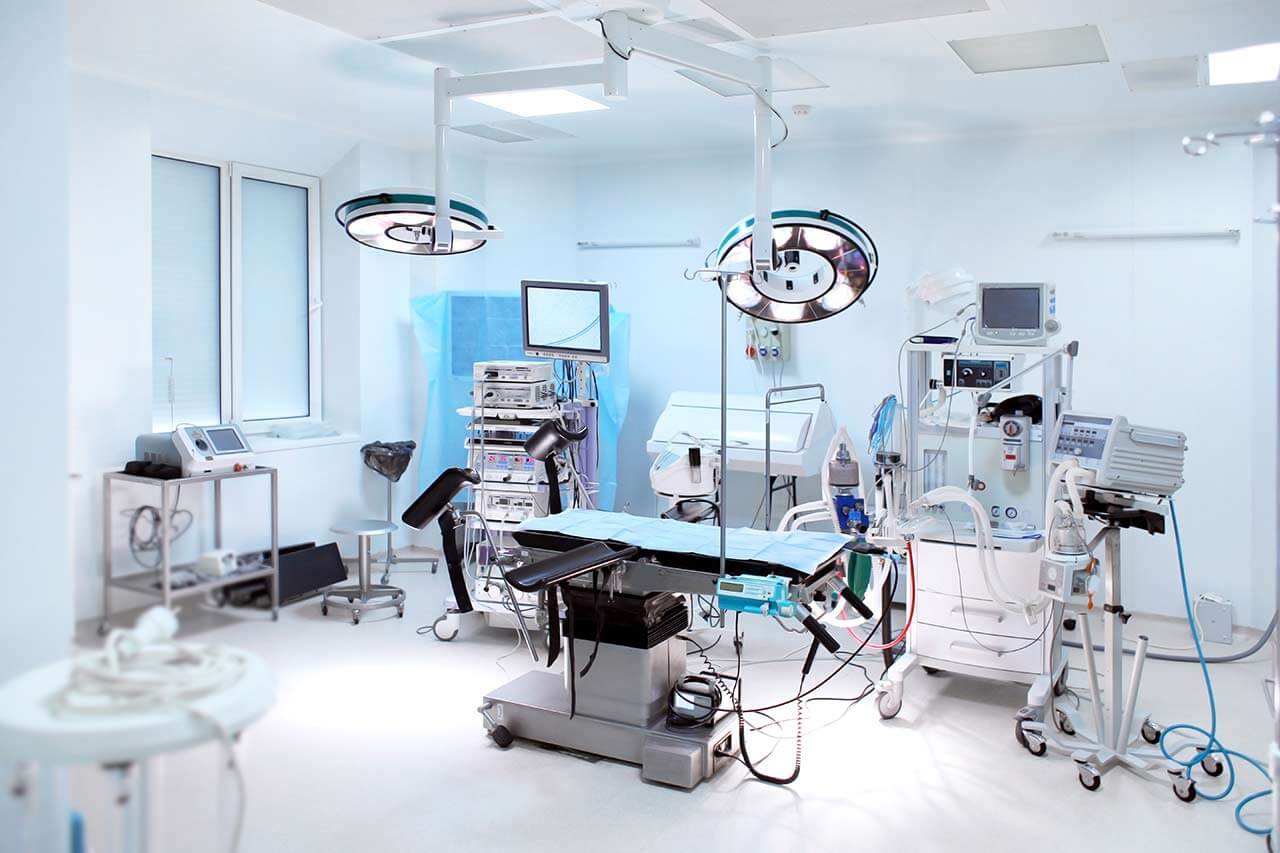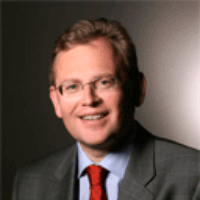
The program includes:
- Initial presentation in the clinic
- clinical history taking
- review of medical records
- physical examination
- examination by andrologist/ urologist
- laboratory tests:
- complete blood count
- biochemical analysis of blood
- tumor marker
- TSH-basal, fT3, fT4
- measurement of hormone levels
- ultrasound of the breast
- mammogram
- consultation of related specialists
- symptomatic specific treatment
- the cost of essential medicines and materials
- nursing services
- control examinations
- full hospital accommodation
- developing of further guidance
Required documents
- Medical records
- Results of hormone blood tests (if available)
- Breasts ultrasoud (if available)
Service
You may also book:
 BookingHealth Price from:
BookingHealth Price from:
About the department
According to the Focus magazine, the Department of Endocrinology and Diabetology at the University Hospital Duesseldorf ranks among the top German departments specializing in diabetes mellitus treatment!
The department offers the full range of diagnostics and treatment of diseases of the endocrine glands, diabetes mellitus and metabolic disorders. The treatment is carried out both on an inpatient and outpatient basis. The department's medical team makes every effort to provide each patient with an individual, effective treatment, which meets international standards. The department is headed by Prof. Dr. med. Michael Roden.
The department is the certified Diabetes Center (German Society of Diabetology), which holds leading positions in Germany and regularly demonstrates the excellent treatment results in this pathology. In addition to the qualified medical care for the patients with diabetes mellitus, the doctors provide comprehensive consultations and special courses on lifestyle modification in order to maintain a stable, satisfactory condition of the patient and to prevent the progression of the disease.
The main clinical focuses of the department include:
| General endocrinology |
|
| Special endocrinology |
|
| Diabetology |
|
Metabolic disorders |
|
Other diseases and treatment methods |
Curriculum vitae
Education and Postdoctoral Training
- 1986 Doctor of Medicine, University of Vienna, Austria.
- 1986 - 1988 Research Fellow, Pharmacology Institute, University of Vienna.
- 1988 - 1993 Fellow, Internal Medicine, University of Vienna.
- 1994 - 1995 Max-Kade Fellowship, Yale University, New Haven, CT.
Licensure and Certification
- 1994 Internal Medicine, Austria.
- 1997 Endocrinology and Metabolism, Austria.
- 2003 Clinical Pharmacology, Austria.
- 2008 Internal Medicine and Clinical Studies, Germany.
- 2010 Endocrinology and Diabetology, Germany.
Academic Appointments
- 1982 - 1984 Instructor in Anatomy, University of Vienna.
- 1987 - 1990 Lecturer, Pharmacological Institute, University of Vienna.
- 1989 - 1994 Assistant Lecturer, Department of Internal Medicine I/III, University of Vienna.
- 1994 Assistant Professor (Habilitation), University of Vienna.
- 1997 Associate Professor of Medicine, University of Vienna.
- 2000 - 2004 Board Member, Human Ethics Committee, University of Vienna.
- 2003 - 2008 Coordinator/Professor, Teaching Hospital, University of Vienna.
- 2005 Director, Karl-Landsteiner-Institute for Endocrinology and Metabolism, Vienna.
- 2008 Chair / Professor of Medicine, Heinrich Heine University, Duesseldorf.
- 2008 Scientific Executive Officer, German Diabetes Center (DDZ).
Clinical Appointments
- 1993 - 2003 Consultant, Department of Internal Medicine III, General Hospital Vienna.
- 2003 - 2008 Head, Department of Internal Medicine I, Hanusch Hospital, Vienna.
- 2008 Head of the Department of Endocrinology and Diabetology, University Hospital Duesseldorf.
Professional Interests
- Diabetes, insulin resistance, energy metabolism and mitochondrial function.
- Isotopic dilution techniques and application of 13C-31P-1H NMR spectroscopy.
- Nonalcoholic steatosis.
- Endocrine regulation (obesity, pheochromocytoma, hypoglycemia).
Awards and Honors
- 1992 Friedrich Wewalka Memorial Award, Austrian Society for Gastroenterology and Hepatology.
- 1996 Joseph Skoda Research Award, Austrian Society of Internal Medicine.
- 2000 Ferdinand Bertram Award, German Diabetes Association.
- 2002 Sandoz/Novartis Award for Chemistry, Biology and Medicine.
- 2004 International Novartis Award for Innovative Patient Oriented Research.
- 2006 ESCI (formerly Mack-Foster) Award for Excellence in Clinical Sciences.
- 2006 Oskar-Minkowski Prize, European Association for the Study of Diabetes (EASD).
- 2006 Honorary Professor for Clinical Endocrinology, Danube University Krems.
- 2010 University Professor by the Federal Ministry of Science and Research, Austria.
Editorial Boards
- 1997 - 2003 Assistant Editor, Diabetologia.
- 2002 - 2010 Associate Editor, European Journal of Clinical Investigation.
- 2004 - 2008 Associate Editor, Diabetic Medicine.
- 2004 Member of the Editorial Board, American Journal of Physiology, Endocrinology, Metabology.
- 2007 Member of the Editorial Board, Experimental Clinical Endocrinology and Diabetology.
- 2009 Member of the Editorial Board, Endocrinology.
- 2010 Associate Editor, Diabetologia.
Functions in Professional Societies
- 2001 - 2002 Vice President, European Society for Clinical Investigation.
- 2002 - 2005 Member of the Council, European Association for the Study of Diabetes.
- 2004 - 2005 President, Austrian Diabetes Association.
- 2004 - 2009 Board Member, Austrian Obesity Association.
- 2009 President of the Central European Diabetes Association.
- 2011 Honorary Treasurer, European Association for the Study of Diabetes.
Photo of the doctor: (c) Universitätsklinikum Düsseldorf
About hospital
According to the authoritative Focus magazine, the University Hospital Duesseldorf ranks among the top Germany hospitals!
The hospital is an excellent example of a combination of high-quality health care, research and teaching activities. With more than 50,000 inpatients and about 300,000 outpatients every year, the hospital is one of the largest and most prestigious medical institutions in Germany and Europe.
Modern, safe and sparing diagnostic and therapeutic methods guarantee effective treatment of various diseases and their consequences. All therapeutic processes are based on an interdisciplinary approach, which provides comprehensive medical care and optimal treatment result. Obviously, one of the key roles in the successful clinical practice of the medical institution is played by a highly qualified medical personnel, which consists of the best world-class doctors. The hospital also has a special advantage due to the structured equipment with the innovative medical technologies.
The hospital presents almost all fields of modern medicine. Special attention should be given to such focuses as oncology and hematology, stem cell transplantation, neurosurgery and neurology, urology, obstetrics and gynecology, hepatology, kidney transplantation, vascular surgery, cardiac surgery, pediatric surgery, pediatric oncology, etc.
In addition to the outstanding quality of medical services, the hospital guarantees each patient an attentive care, friendly atmosphere, as well as sensitive and respectful attitude.
Photo: (с) depositphotos
Accommodation in hospital
Patients rooms
The patients of the University Hospital Duesseldorf live in comfortable single, double and triple rooms. The patient rooms are made in bright colors and modern design. The room furnishing includes an automatically adjustable bed, a bedside table, a wardrobe, a telephone, a multimedia device (TV, radio, Internet access), a table and chairs for receiving visitors. To use the phone and multimedia device, the patient should have a special chip card, which can be purchased at the reception. In the pediatric departments multimedia device can be used for free.
Meals and Menus
The patients of the hospital are offered a varied, tasty and healthy diet. Every day there are three menus to choose from for adults and four menus to choose from for children, while it is possible to develop an individual menu. When pre-ordering, the international patients may have dishes of various cuisines of the world, for example, Asian and African cuisine. If a patient needs a diet in accordance with the clinical indications, he will be provided with a special diet menu, including drinks.
Every day, the nurses inform the kitchen workers about the patient wishes using an electronic data processing system. Immediately before serving food, there are printed special cards, which indicate for which patient this or that dish is intended.
Also, the hospital houses a cafeteria with a rich selection of delicious, healthy dishes, snacks and drinks.
Further details
Standard rooms include:
Religion
Christian priests are available for the patients at any time. Representatives of other religions may be requested at any time.
Accompanying person
Your companion may stay with you in your room or at a hotel of your choice during the fixed program.
Hotel
You may stay at the hotel during the outpatient program. Our employees will support you for selecting the best option.
The hospital offers a full range of laboratory tests (general, hormonal, tests for infections, antibodies, tumor markers, etc.), genetic tests, various modifications of ultrasound scans, CT scans, MRI and PET / CT, angiography, myelography, biopsy and other examinations. Treatment with medications, endoscopic and robotic operations, stereotaxic interventions is carried out here, modern types of radiation therapy are also used. The hospital offers patients all the necessary therapeutic techniques.
- Dermatosurgery
- Skull base surgery
- Gastric bypass and bandage
- Removal of lung metastases
- Interventions on the spine
These are skin cancer (including melanoma), head and neck tumors, pathological changes in the chest (including funnel chest), obesity, liver diseases, HIV and other infectious diseases, varicose veins, aortic aneurysm, carotid artery stenosis, joint diseases and other pathologies.
- Dermatology
- Oncology
- Otorhinolaryngology
- Endocrinology and diabetology
- Orthopedics and traumatology
Over 800 highly qualified physicians work at the hospital.
